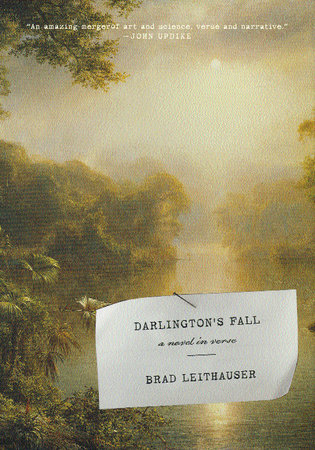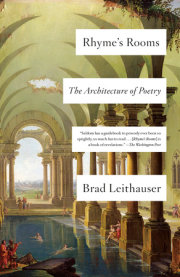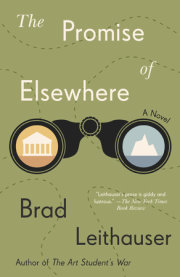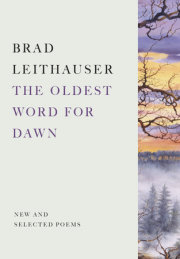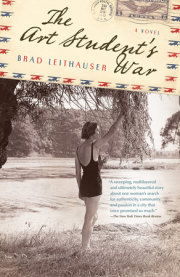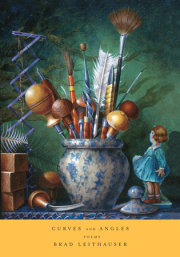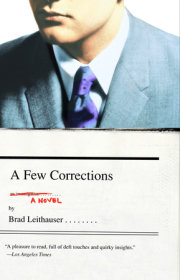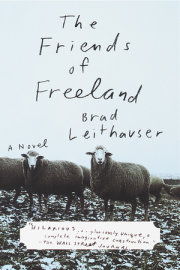Half an Orphan
The hand hungers: the jewel of the world,
And his for the taking. In all his long
Life of looking, never once beheld
A thing so fine—never wanted anything
Quite so much as this astonishing
Being, this stout green glittering
Prize . . . But the getting his hands on it,
The business of the capturing,
That will be dicey (difficult, delicate),
With so many ways everything can go wrong . . .
Hands are hungry and with hungry hands
You must work extra hard to keep
Your wits about you, to be slow and quick
At once, as the situation demands.
(When you're so full of wanting, it's no small trick.)
Boil down all the trees in the forest until
They form a single cup of resin, still
You would never concoct a green
So bright, so dark, so dizzyingly deep
As this, the purest color he has ever seen.
The jewel of the world: conceived
In mud and muck, then dropped on a fallen log
Down at the edge of the pond. He can't stop
Even to remove his shoes—no time—
Wades rights in, feet sucked at by the slime . . .
The trouble here? It's that the frog
(The hugest frog in all the world) can get away
So many different ways, can simply drop—
Flop!—and be gone, never to be retrieved.
Oh, so many ways for things to go astray!
He slides toward it, heart about to burst
In his mouth, heart full in his hands.
It must be A
dream . . . that's what he'd thought at first,
Spotting it: so big, so green, and
right there.
That was the amazing thing: the thing's reality.
The wish formed instantly, deep as any prayer:
Let me get my hands on him! Here's the prize
He's waited all his life for: the overfull
Eyes and barrel chest, the kingly receding skull,
The bulging banked power in the thighs . . .
A sliding step—a sliding step—and nearly
Nearly there. Inside his chest, desire suspends
A weight, a weight connected to a spring,
His heart like a mousetrap, waiting
To snap shut with an absolutely desolating
Empty
clap . . . How will he bear it if the thing
Escapes?—oh, when he wants it so dearly,
Never wanted anything so much!
And almost there, now he can all but touch—
A hungry beggar's hand extends . . .
He lunges, just as the frog leaps,
And right there,
in midair,
in midair's where
The two creatures (hands of the one, brute
Miraculous torso of the other) lock
Together, a solid thumping
shock That races up his arm like a flare,
Crackles and cleanses and expands
As it climbs, torching his brain. (And the fire keeps
Burning: decades hence, when his fleet-foot
Boyhood's dim, he'll recall, with tingling hands,
The summer morning when his little hands
Clamped on the creature and held it whole,
Feeling in that moment so rich a press
Of feeling, perhaps no other touch
(Or maybe one?—one only?—the one to come
Four decades on?) ever will thrill him quite so much.
Oh, every cell in his body understands
What he himself cannot begin to guess:
This instant lasts forever, there are some
Encounters that configure your soul.)
The thing squirms—
squirms half loose, slips,
But his fingers grapple: one leg,
got it, one
Big back leg grasped tight, as his other hand, scooping
Upward, catches it from below, grips
It round the chest: the booming noble pulse
Yes in his palm: he has it, it's now his great good luck
To have it: the jewel of the world—and where else
But in the warm chalice of his hands? A whooping
Howl rips free of his throat, winging like a duck
Over the trees, straight at the sun.
. . . Quite a specimen himself, striding in glory
From the swamp to Great Elm Street with his live
Plunder, feeling on this day of his greatest fame
Like king of the whole town, his hometown, Storey,
Indiana—this Russel Darlington,
Customarily known as Russ, although the name
He himself secretly prefers is one
Provided by Mr. Hauser, the town pharmacist,
Who calls him Little Mister Naturalist.
Russ is seven, this summer of 1895.
Quite a small boy still, yet even so
An object of large and labored supposition
To his neighbors. For one thing, his father, John,
May well be the county's wealthiest man; for another,
The boy's clearly in need of female supervision,
His mother having died three years ago
Giving birth to a stillborn son
(It being a truth universally understood
That a young male heir to a good
Fortune is in want of a mother).
Copyright © 2002 by Brad Leithauser. All rights reserved. No part of this excerpt may be reproduced or reprinted without permission in writing from the publisher.

